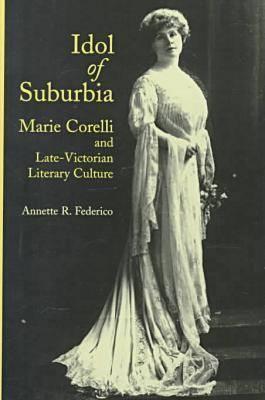Marie Corelli (1855-1924) was the most popular novelist of the turn of the century, outselling Hall Caine, Mrs. Humphry Ward, H. G. Wells, and Arthur Conan Doyle by the thousands. For thirty years she was ridiculed by reviewers and the literary elite--Edmund Gosse dismissed her as "that little milliner"--but these opinions had no impact on her mass appeal. In 1895, with The Sorrows of Satan, she broke all previous publishing records, and by 1906 a Corelli novel sold 100,000 copies a year.
Idol of Suburbia returns Marie Corelli to conversations about the late-Victorian and Edwardian literary world. As Annette R. Federico points out, Corelli's participation in the cultural life of her time was highly creative, combative, and contradictory. Her ongoing war with highbrow literary critics and her management of her own image illuminate continuing debates about literary value, class hegemony, and gender politics at the fin de siecle.
In examining Corelli's celebrity and her protean literary talents in the context of a changing book market, Federico reveals the profusion of the late-Victorian literary imagination. She analyzes Corelli's participation in literary decadence, feminism, and New Woman fiction, and she discusses how seriously we should take her aesthetic and its literary influence. Federico asks why heterosexual love seems pathological in so many of Corelli's novels and assesses the validity of biographical and psychoanalytic explanations of her celibacy and her lifelong companionship with another woman.
Idol of Suburbia is the first full-length study to address these questions and to set Corelli within the framework of literary history and contemporary critical theory.
